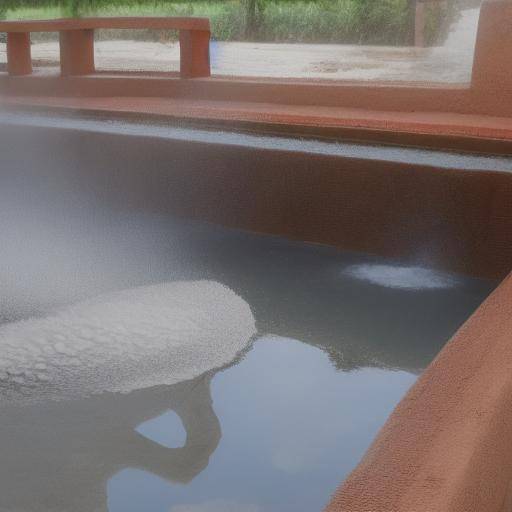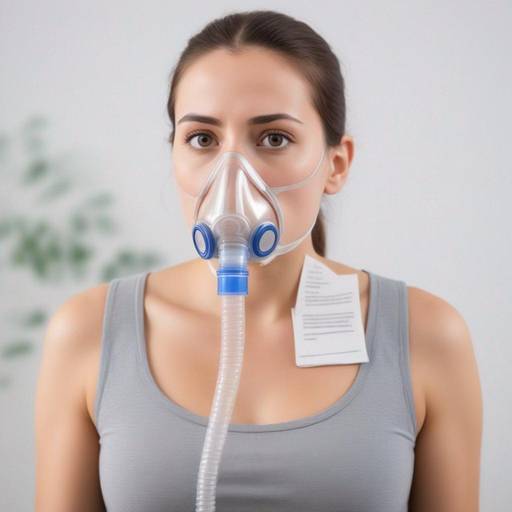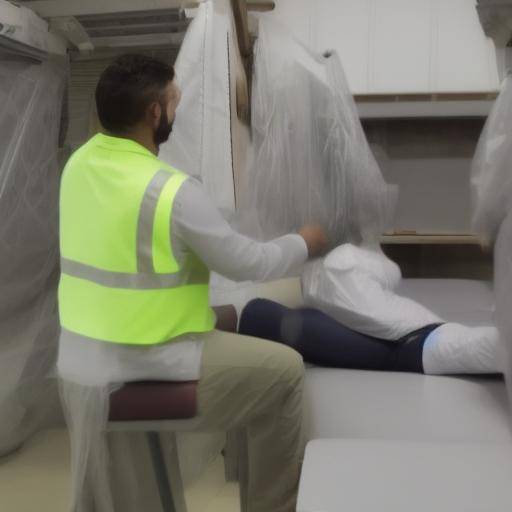
Hot water baths are a practice that has been used throughout history as a means to relieve stress and promote physical and mental well-being. In this article, we will explore in detail the impact of hot water baths on stress reduction, as well as their relationship with relaxation and physical well-being. We will discover the benefits of this practice, its history, its application in different contexts, and the perspectives of experts on the subject.
History and Background
Hot water baths have been part of various cultures throughout history. From the Roman hot springs to the Japanese onsen, the use of thermal waters with therapeutic properties has been a constant. These practices go back to ancient civilizations that recognized the healing and relaxing benefits of hot water. In the modern world, hot baths have evolved to include spas and spas that offer thermal treatments with medicinal properties.
The practice of dipping in hot water has been recognized for its therapeutic and relaxing benefits, which go beyond the simple pleasure of immersion. For centuries, hot baths have been considered to have positive effects on blood circulation, muscle relaxation, stress reduction and overall well-being.
Analysis in Deep
Hot water baths offer a variety of benefits for physical and mental health. Water heat helps relax muscles and reduce tension, which in turn can relieve stress and anxiety. The relaxing effect of hot water can also contribute to better rest and recovery. In addition, dipping in hot water can improve blood circulation, relieve pain and promote detoxification through sweat.
Over the years, many studies have supported the benefits of hot water baths in reducing stress and promoting physical well-being. Research has shown that plunging into hot water can have positive effects on cardiovascular health, nervous system, and sleep quality. It has also been noted that this practice may have benefits for people suffering from conditions such as arthritis, fibromyalgia and chronic fatigue.
Comprehensive review
Hot water baths have diverse applications, from their therapeutic use in spas and wellness centers to their presence at home as a form of relaxation. Natural thermal waters are especially appreciated for their healing properties, and have led to tourist destinations known for their thermal waters.
At present, hot baths have also been popularized in the form of hot tubs and private spas. More and more people use these methods to find stress relief, relax after a hard day of work, and improve their overall well-being.
Comparative analysis
By comparing the concepts of hot baths, relaxation and physical well-being, it is evident that these are closely related. Hot water baths provide an enabling environment for relaxation and disconnection, and their beneficial effects on physical and mental well-being are well documented.
Relaxation is a key component in reducing stress and promoting well-being, and hot water baths are an effective tool to achieve that state of relaxation. In turn, physical well-being is favored by the therapeutic effects of water heat on muscles, blood circulation, and pain reduction.
Practical Tips and Accessible Advice
By enjoying hot water baths, it is important to follow certain guidelines to ensure a safe and effective experience. Make sure the water temperature is right for you, avoid staying long in the water to avoid dehydration, and consider adding bath salts or essential oils to enhance the relaxing effects. In addition, it combines hot water baths with other relaxation practices, such as meditation, deep breathing or massage, to maximize their benefits.
Vision of Industry and Opinions of Experts
Health and well-being professionals recognize the therapeutic value of hot baths. Experts on holistic medicine, physical therapists and spa therapists support the use of hot water baths as an effective tool for relaxation and stress reduction. In addition, the well-being industry has increasingly integrated hot-water bath treatments into its offers, recognizing its positive impact on people's physical and mental health.
Case Studies and Real Life Applications
Various case studies have shown how hot water baths have improved the quality of life of people with chronic stress problems, muscle aches and sleep problems. The practice of dipping in hot water has proven to be an effective strategy to complement medical treatments, improve mobility and reduce fatigue in patients with specific health conditions.
In addition, hot water baths have applications in contexts that go beyond personal well-being. Its use in therapeutic spas, spas, rehabilitation facilities and long-term care centers demonstrates the versatility and benefits of this practice.
Future Trends and Predictions
As awareness of the impact of health stress continues to grow, hot water baths are expected to remain a popular tool for stress reduction and the promotion of physical and mental well-being. In addition, with advances in technology and design, methods and devices to enjoy hot water baths are likely to become more accessible and sophisticated, allowing more people to benefit from this practice.
Conclusions
In short, hot water baths have a significant impact on stress reduction and the promotion of physical and mental well-being. The practice of dipping in hot water has been valued throughout history for its therapeutic effects, and its relevance is still relevant. By combining the benefits of relaxation, stress reduction and physical well-being, hot baths offer a powerful tool to improve people's quality of life.
Frequently asked questions
What are the specific benefits of hot water baths for stress reduction?
Hot water baths help reduce stress by promoting muscle relaxation, improving blood circulation, and providing an enabling environment for mental disconnection. In addition, water heat can help relieve tension and anxiety, favoring a state of calm and well-being.
How often is it recommended to enjoy hot water baths to gain significant benefits in stress reduction?
The ideal frequency to enjoy hot water baths can vary according to individual needs. In general, it is recommended to enjoy regular hot baths, but it is important to listen to the signs of your body and adjust the frequency according to your personal sensations.
Are there contraindications or precautions to take into account when enjoying hot water baths?
Some people, such as those with cardiovascular problems, diabetes or other health conditions, should have precautions when enjoying hot water baths. Check with a health care professional before starting any hot bath practice if you have specific medical concerns.
What is the difference between hot water baths and saunas in terms of stress reduction?
While both hot water baths and saunas can have beneficial effects on stress reduction, each has its own particularities. While hot water baths offer the experience of diving in water, which can also have therapeutic effects on muscle relaxation, saunas are based on dry heat to induce breath and promote detoxification.
What are some additional strategies that can complement the benefits of hot water baths to reduce stress?
In addition to enjoying hot water baths, you can complement your benefits with practices such as meditation, yoga, massage, or aromatherapy. Establishing a self-care routine that includes a combination of these practices can enhance the positive effects on stress reduction.
Are hot water baths equally effective for men and women in terms of stress reduction?
Yes, hot water baths can be beneficial for men and women in terms of stress reduction. The warmth of the water and the relaxing environment can be equally effective in providing stress relief and promoting well-being, regardless of gender.
Are there regional differences in the practice of hot water baths and their perceptions of stress reduction?
Yes, hot water bath practices can vary in different regions of the world, influenced by cultural traditions and local thermal water properties. However, the perception of hot water baths as a tool for stress reduction is universal, with benefits recognized in various cultures.
Concluding, hot water baths have a significant impact on stress reduction, the promotion of relaxation and physical well-being. Its long history of therapeutic use supports its effectiveness, and its relevance today remains relevant. By integrating this practice into a self-care routine, people can experience the transforming benefits of hot water baths to relieve stress and promote comprehensive health.






















































